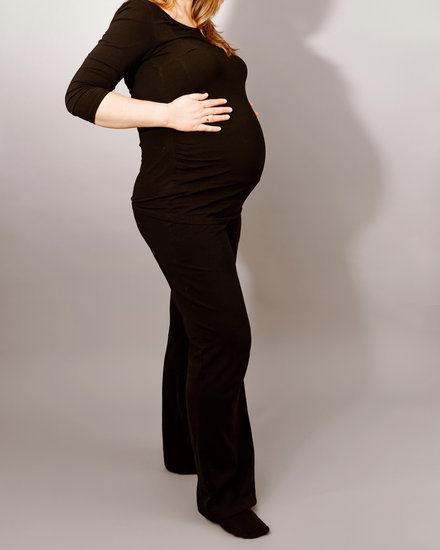Are you expecting and wondering how long is pregnancy in weeks? Pregnancy is an exciting journey that lasts for about 40 weeks from the first day of your last menstrual period. In this article, we’ll explore the various stages of pregnancy, from conception to delivery, and understand the changes that occur throughout this incredible process.
Pregnancy is typically divided into three trimesters, each with its own unique experiences and developments. As we delve into the timeline of pregnancy, we will discover how a baby grows and develops during each stage, as well as the physical and emotional changes that occur in the expectant mother. By understanding the duration of pregnancy in weeks, you can better prepare for this transformative experience and know what to expect as your due date approaches.
From the early stages of conception to the final weeks leading up to childbirth, there are many factors that influence the length of pregnancy. Whether it’s genetics, maternal health, or even environmental factors, these can all play a role in determining how long a pregnancy lasts.
Throughout this article, we will also explore some of these influencing factors and gain insight into why pregnancies may vary in duration. Stay tuned as we embark on this journey through the wonder of pregnancy.
The Trimesters of Pregnancy
During pregnancy, a woman’s body goes through significant changes to support the growth and development of the baby. Understanding the trimesters of pregnancy is essential for both expectant mothers and their healthcare providers. The duration of pregnancy is typically divided into three trimesters, each lasting around 12-13 weeks.
The first trimester begins at conception and lasts until week 12 of pregnancy. During this time, the fertilized egg implants in the uterus and starts to develop into an embryo. Important milestones such as the formation of the baby’s major organs and systems occur during this stage. Expectant mothers may experience common symptoms such as morning sickness, fatigue, and mood swings.
The second trimester spans from week 13 to week 28 of pregnancy. This is often referred to as the “honeymoon phase” of pregnancy since many women experience relief from early pregnancy symptoms like nausea and fatigue. The baby’s movements become more pronounced, and expectant mothers may begin to feel kicks and flutters. Additionally, vital organs continue to develop, and ultrasound scans can reveal the baby’s gender if desired.
As we explore the third trimester in the next section, it’s important to note that every pregnancy is unique, and individual experiences may vary. Understanding how long pregnancy lasts in weeks helps expectant mothers track their progress and prepare for each stage of development.
Conception to Week 4
When a woman becomes pregnant, the first few weeks are crucial for the development of the fetus. It all starts with conception, which typically occurs around two weeks after the first day of her last menstrual period. During this time, the fertilized egg begins to divide and make its way down to the uterus for implantation.
Once implantation occurs, the pregnancy is considered official. At this point, it’s important for the mother-to-be to start taking care of her body by avoiding alcohol, drugs, and certain medications that may harm the developing embryo. This is also a good time to start taking prenatal vitamins with folic acid to support the early stages of fetal development.
From week 3 to week 4, the embryo undergoes rapid growth and starts to form major organs and systems such as the heart, brain, spinal cord, and gastrointestinal tract. By the end of week 4, the embryo is about the size of a poppy seed. This marks the end of what is known as “embryogenesis” – when all major organs are formed – and from that point on until birth, it’s considered “fetal development”.
Early Pregnancy to-Do List
- Start taking prenatal vitamins with folic acid
- Avoid alcohol and drugs that may harm fetal development
- Schedule a pre-natal appointment with a healthcare provider
Pregnancy Week by Week: What to Expect
- Week 1-2: Conception occurs
- Week 3: Fertilized egg implants in uterine wall
- Week 4: Major organ formation begins
Week 5 to Week 12
During weeks 5 to 12 of pregnancy, significant developments occur in the baby’s growth and the expectant mother’s body. By week 5, the baby’s heart begins to beat and the foundations for major organs are laid.
At around week 8, the baby is referred to as a fetus and starts developing recognizable features such as eyes, ears, and limbs. Throughout this period, the expectant mother may experience symptoms like nausea, fatigue, and mood swings as her body adjusts to the hormonal changes.
As a pregnancy progresses from week 5 to week 12, various milestones mark key stages in the baby’s development. By week 10, vital organs are already in place, and at week 12, the baby has grown significantly from being just a cluster of cells. The first trimester is crucial for fetal development as it sets the stage for how the pregnancy will progress.
Understanding how long pregnancy lasts in weeks can help clarify what expectant mothers can anticipate during each phase of their journey towards motherhood. By being aware of these milestones and developments during weeks 5 to 12 of pregnancy, both parents can better prepare for this life-changing event.
| Weeks | Development/Milestone |
|---|---|
| Week 5 | Baby’s heart begins to beat |
| Weeks 8-9 | Fetus develops recognizable features such as eyes and limbs |
| Weeks 10-12 | Vital organs are in place; fetus grows significantly |
Week 13 to Week 28
The second trimester of pregnancy, which spans from week 13 to week 28, is often referred to as the “honeymoon phase” of pregnancy. Many women find that their energy levels return, morning sickness subsides, and they start to visibly show signs of their growing baby bump.
During this trimester, vital organs like the baby’s kidneys begin to function and the fetus starts to develop its unique fingerprints. By week 20, pregnant women typically experience the halfway point of their pregnancy.
One of the most exciting moments for expectant parents during this trimester is feeling the baby’s first movements, known as “quickening,” which usually occurs between weeks 16 and 25. As the baby grows during these weeks, pregnant women may also undergo various prenatal tests such as an anatomy ultrasound that allows doctors to check on the baby’s development and identify any potential issues.
It is important for pregnant individuals to continue receiving proper prenatal care during this stage. This includes regular doctor’s visits, maintaining a healthy diet, staying physically active (if approved by a healthcare provider), and monitoring fetal movement patterns. Additionally, it is around week 20 when many expectant parents find out the sex of their baby through ultrasound imaging or other non-invasive prenatal testing methods.
| Trimester Stage | Milestones |
|---|---|
| Weeks 13-16 | Quickening – feeling baby’s first movements; onset of prenatal testing |
| Weeks 17-20 | Baby starts developing unique fingerprints; halfway point of pregnancy reached at week 20 |
| Weeks 21-28 | Babies can open eyes; fetal movement patterns should be monitored regularly |
Week 29 to Week 40
During the final stages of pregnancy, expectant mothers are eager to know exactly how long is pregnancy in weeks. This period, which covers from week 29 to week 40, is when the baby undergoes significant growth and development in preparation for birth. Understanding what to expect during these last few weeks can help ease any anxiety and ensure that both mother and baby are properly cared for.
Week 29-32: Preparing for Birth
As the due date approaches, the baby’s movements may start to feel more pronounced as they grow larger and stronger. Meanwhile, the expectant mother might experience discomfort due to the increase in weight and size of her uterus. It is important for mothers at this stage to pay attention to their baby’s movements as a sudden decrease could be a cause for concern.
Week 33-36: Baby’s Growth Spurt
During this time, babies tend to gain about half a pound per week as they fill out and prepare for life outside the womb. The mother may also experience increased back pain or pelvic pressure as the baby continues to grow and descend into position for birth. It’s essential for mothers at this stage to continue regular check-ups with their healthcare provider to monitor the baby’s position and overall health.
Week 37-40: The Final Countdown
In these last few weeks of pregnancy, many women will experience “nesting” instincts, where they feel an urgent need to clean and organize their environment before the arrival of their child. As the due date nears, it’s common for expectant mothers to feel a mix of excitement and impatience as they eagerly await their baby’s arrival.
It is important during this time for mothers-to-be to stay prepared with hospital bags packed and have a plan in place with their birthing team.
Factors Affecting the Length of Pregnancy
There are several factors that can affect the length of pregnancy, with some women giving birth before others. This section will delve into these aspects and how they can impact the duration of pregnancy in weeks.
Maternal Factors
One major factor that can influence the length of pregnancy is the mother’s health and medical history. Women who have preexisting conditions such as diabetes or high blood pressure may have a higher risk of delivering early or needing to be induced. Additionally, lifestyle choices such as smoking, drug use, and being overweight can also contribute to preterm labor.
Fetal Factors
The health and development of the fetus can also play a role in how long a pregnancy lasts. Some babies may be born prematurely due to issues with growth, development, or genetic conditions. It’s important for expectant mothers to attend regular prenatal check-ups so that any potential complications can be detected and addressed early on.
Environmental Factors
External factors such as stress, physical exertion, and exposure to harmful substances in the environment can also impact the length of pregnancy. Studies have shown that experiencing chronic stress during pregnancy may increase the likelihood of preterm labor. Additionally, working long hours or being exposed to certain chemicals in the workplace may also pose a risk.
Understanding these factors is crucial for expectant mothers and healthcare professionals when it comes to managing and monitoring a pregnancy. By addressing potential risks and taking proactive measures, it’s possible to mitigate certain factors that could lead to an early delivery or complications during childbirth.
Conclusion
In conclusion, the duration of pregnancy is typically around 40 weeks, or approximately 9 months. This period is divided into three trimesters, each with its own set of developmental milestones and changes in the mother’s body.
The first trimester covers conception to week 12, the second trimester spans from week 13 to week 28, and the third trimester begins at week 29 and ends at week 40. Throughout these stages, the baby undergoes significant growth and development while the mother experiences various physical and emotional changes.
It is important to note that while the standard length of pregnancy is around 40 weeks, certain factors can affect this timeline. Factors such as genetics, maternal age, overall health, and even multiple pregnancies can impact how long a pregnancy lasts. Additionally, medical conditions or complications may also influence the duration of pregnancy.
Ultimately, understanding how long pregnancy lasts in weeks provides expectant parents with valuable insights into the various stages of fetal development and prepares them for the changes that occur throughout each trimester. By being aware of the typical timeline and staying informed about potential factors that can alter it, individuals can better navigate their pregnancy journey and make informed decisions regarding their prenatal care and childbirth experience.

Welcome to my fertility blog. This is a space where I will be sharing my experiences as I navigate through the world of fertility treatments, as well as provide information and resources about fertility and pregnancy.





